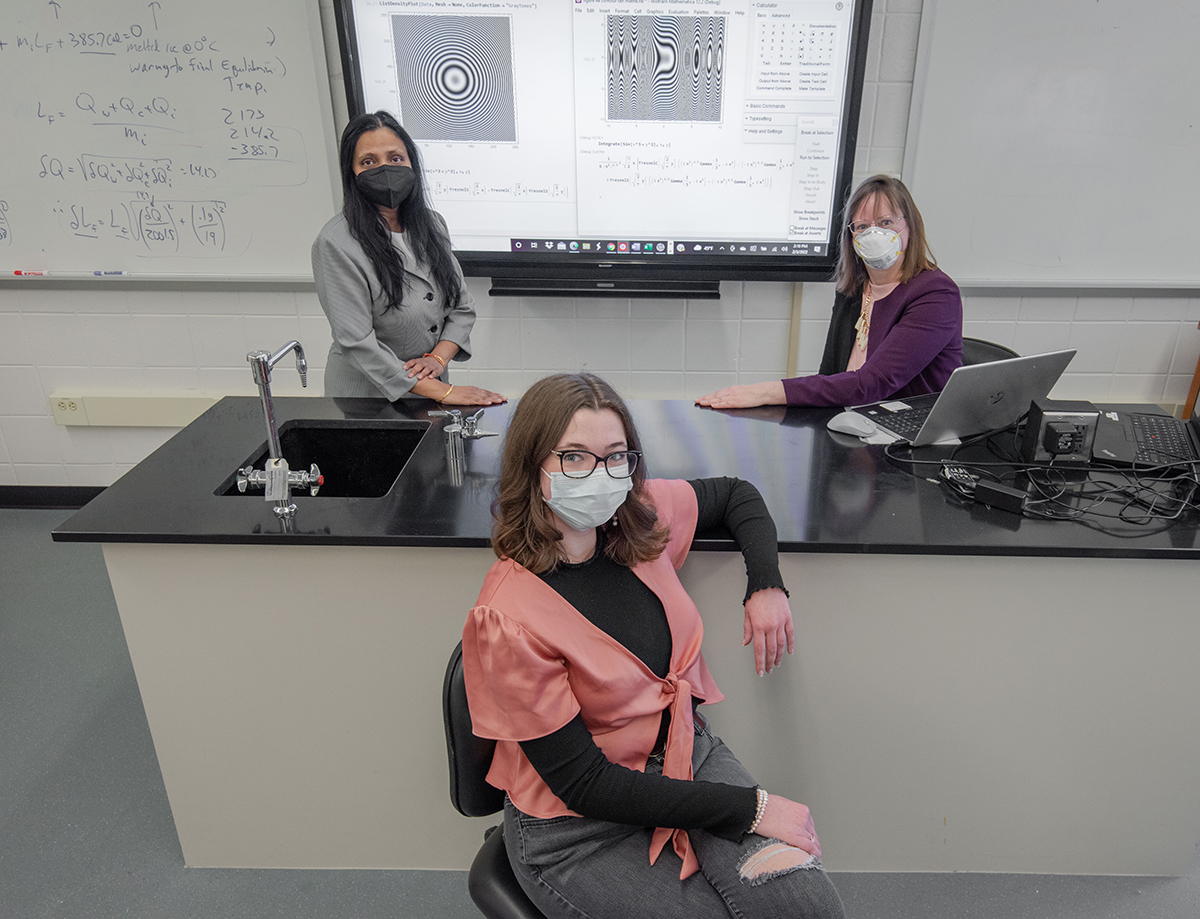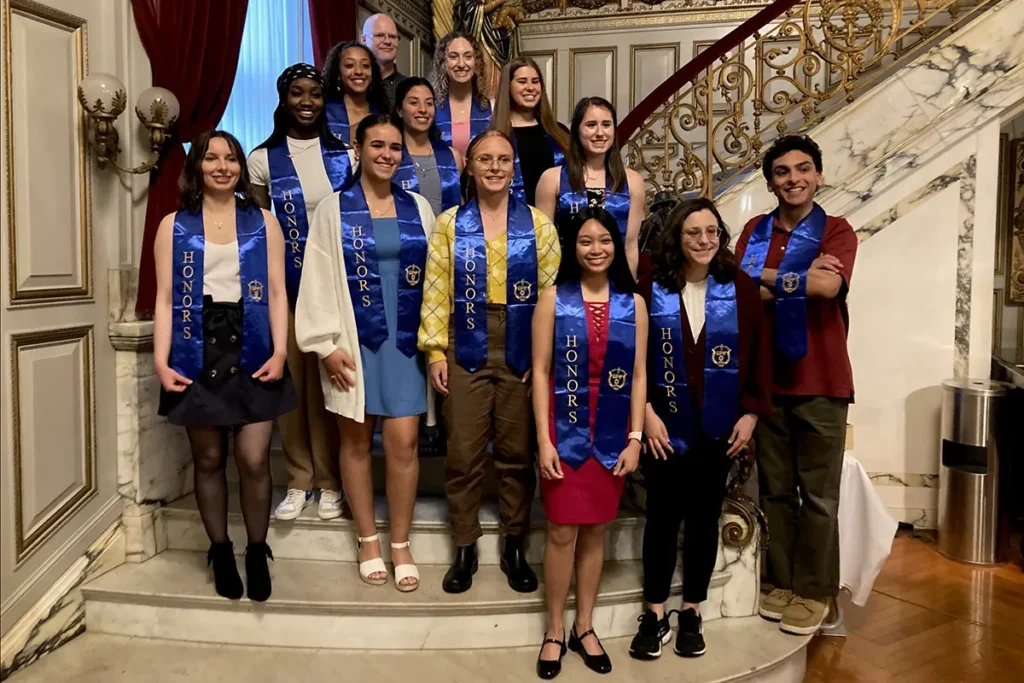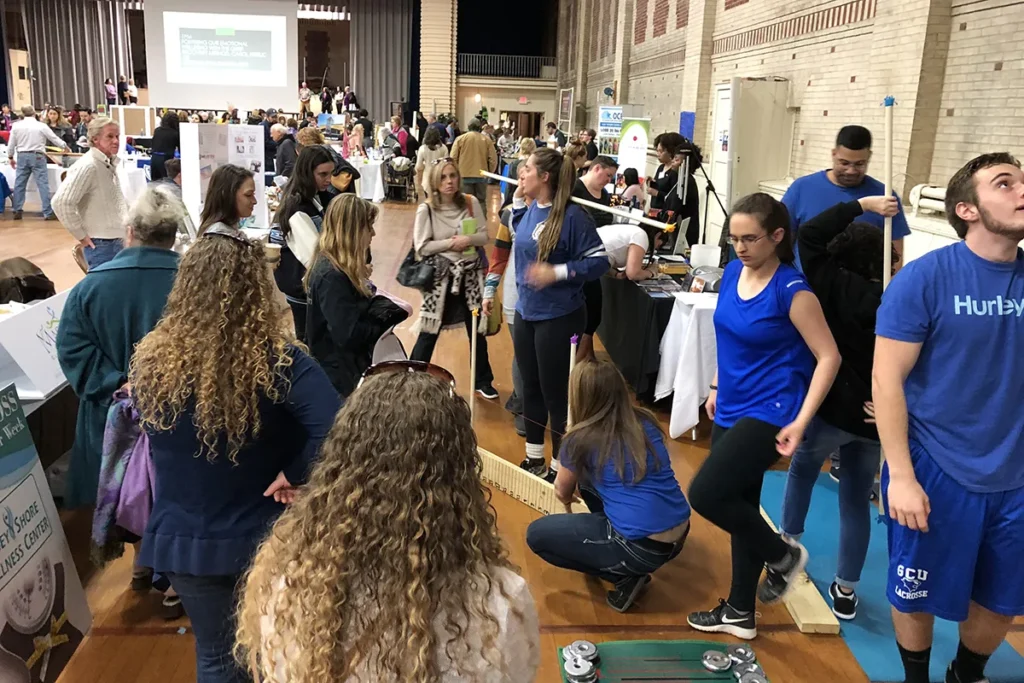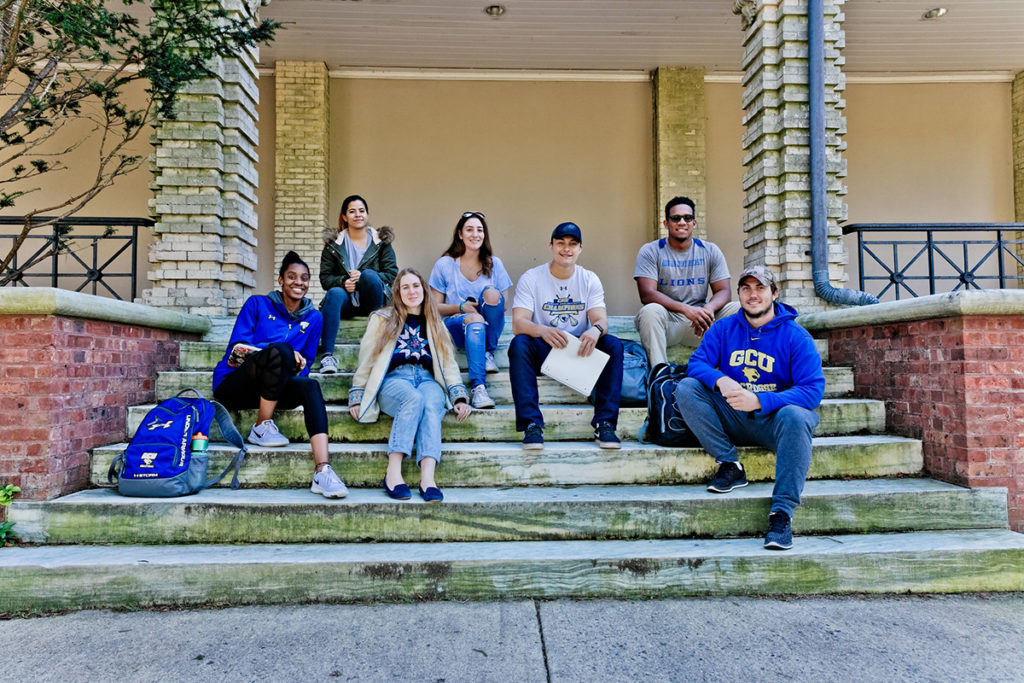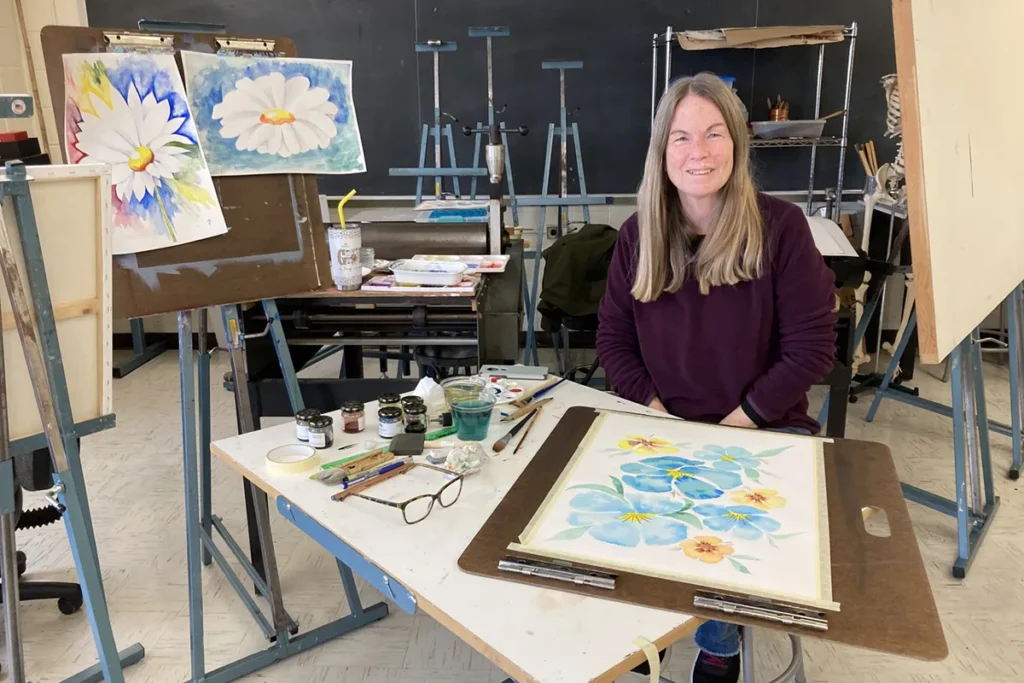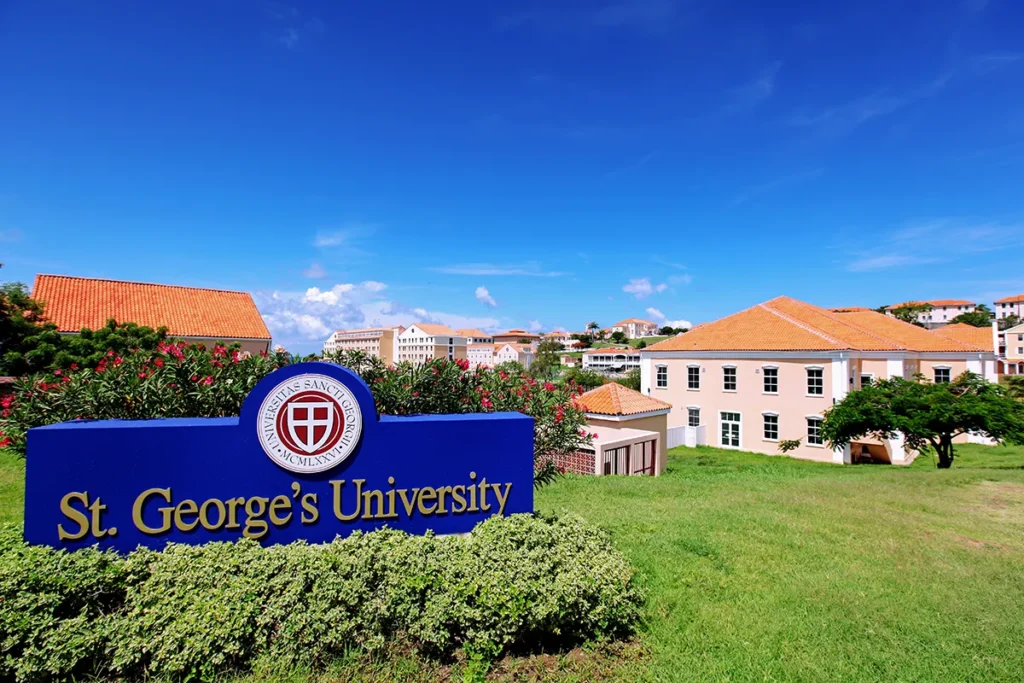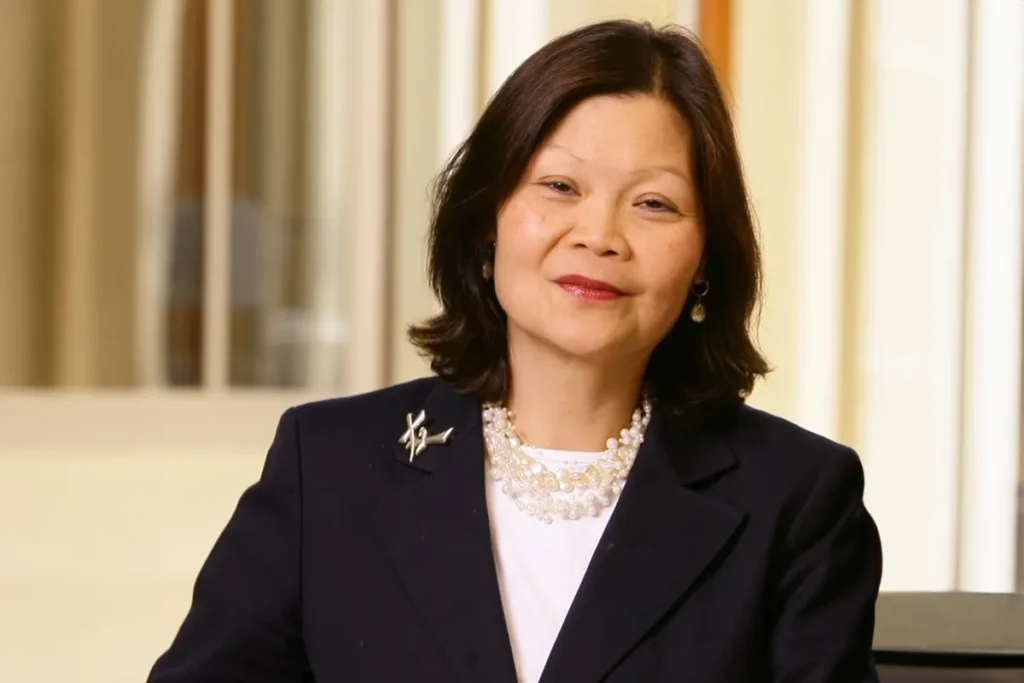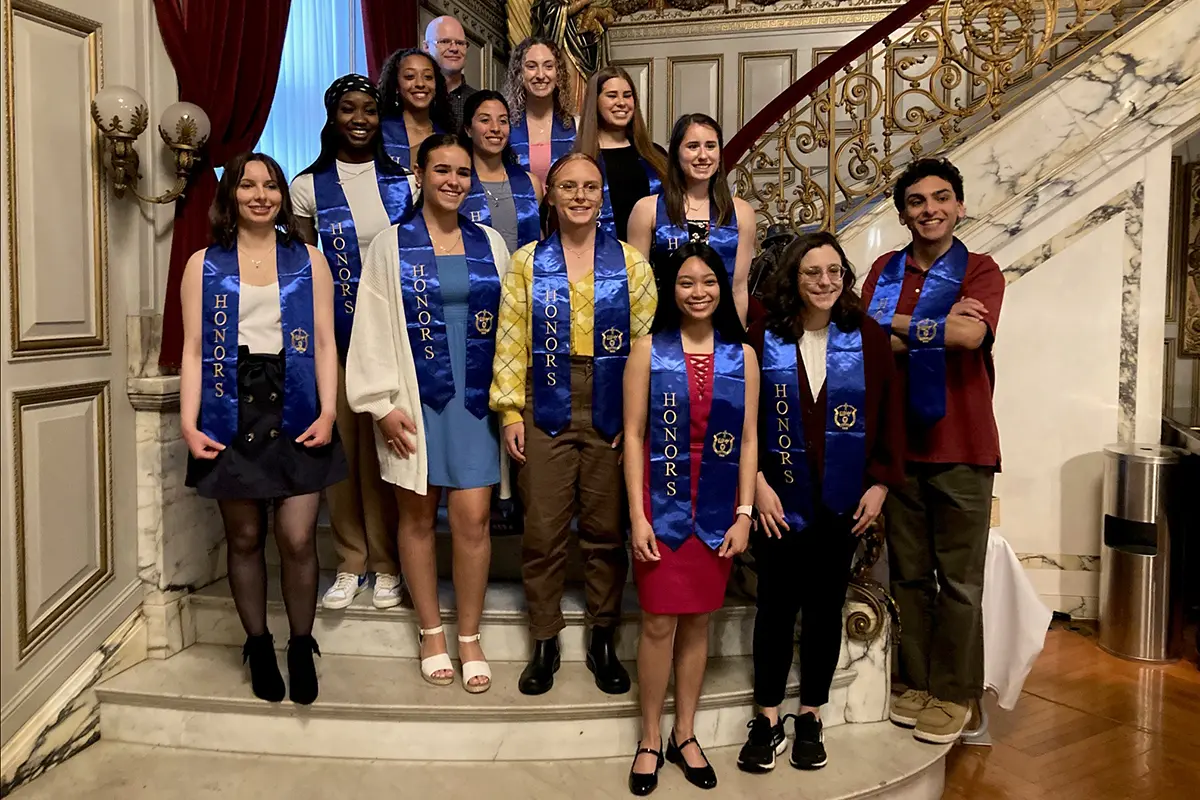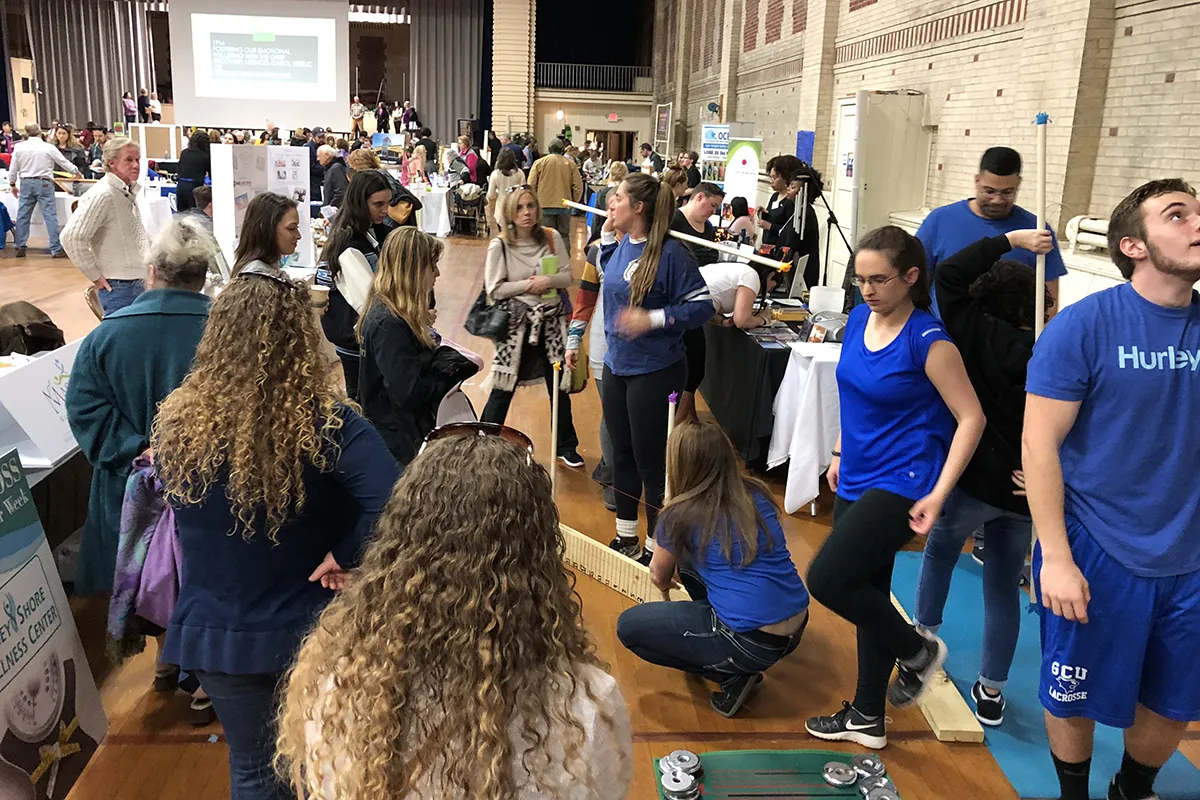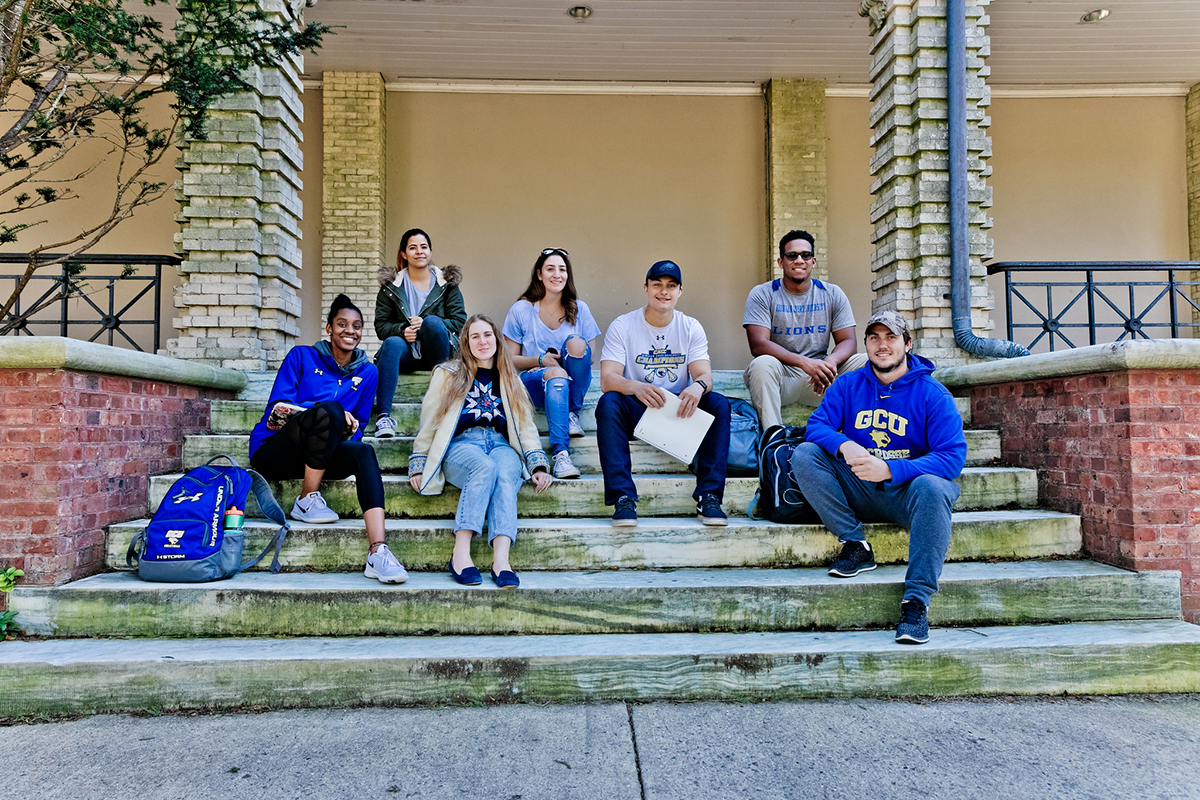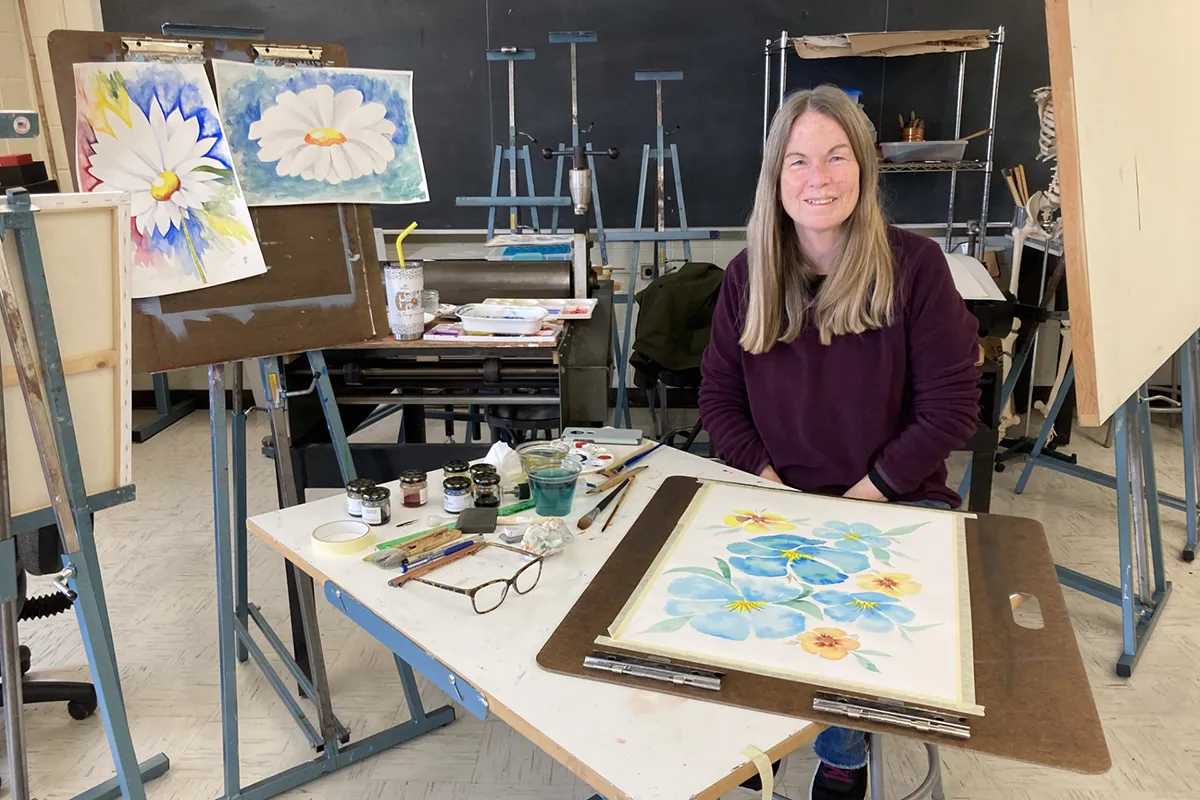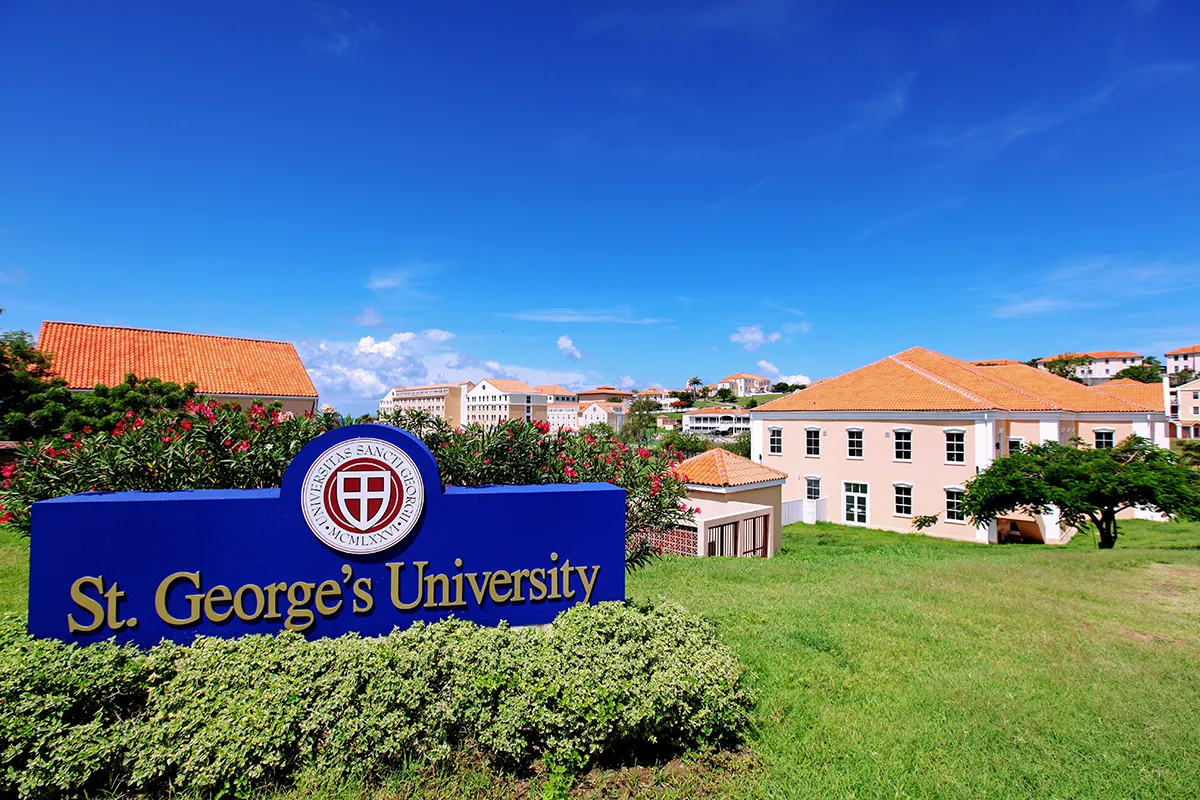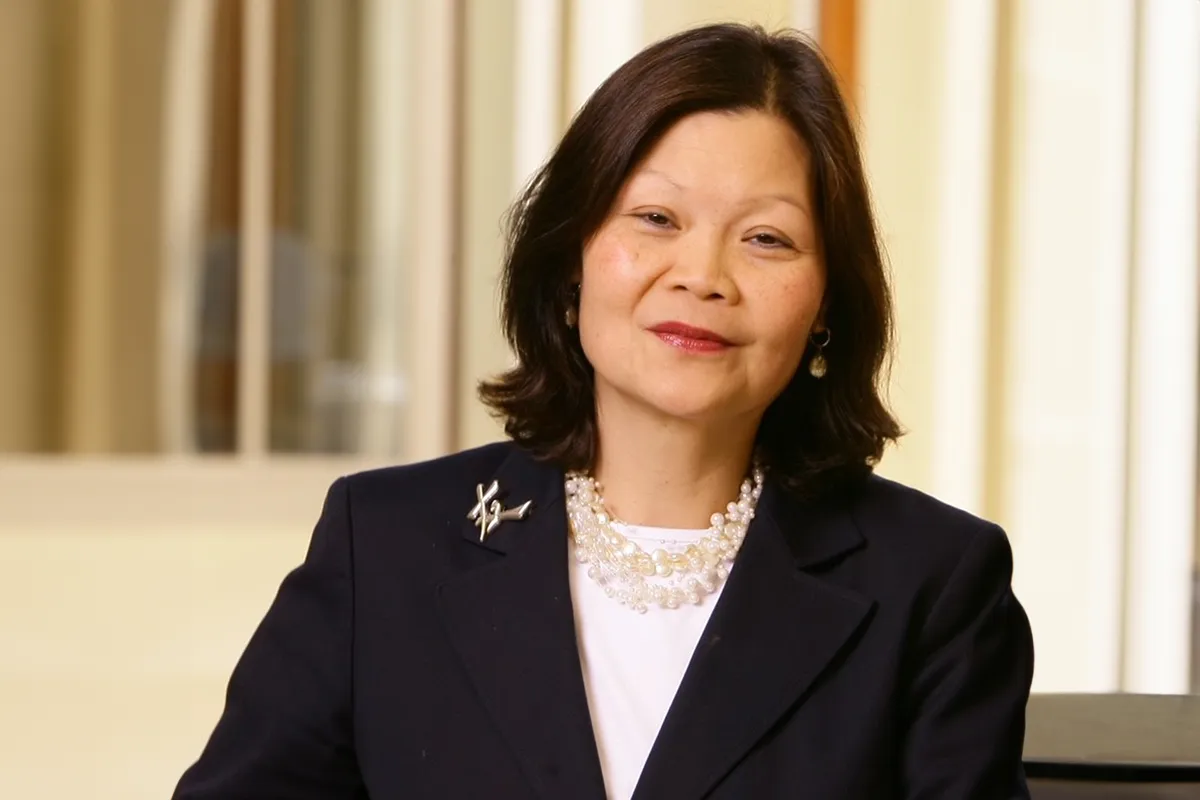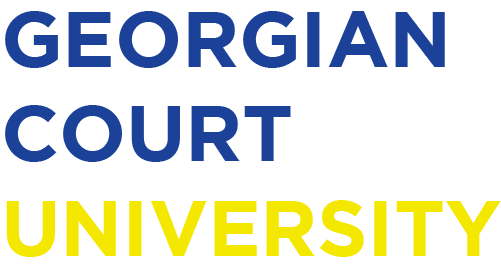Emily Humphries ’22 (center), a NASA Space Grant recipient, has been working with her mentors, Drs. Sarita Nemani (left) and Beth Schaefer (right) since last summer.
Five Georgian Court University undergraduates received NASA Space Grants this academic year—a record number for the university. Each received a $2,000 grant for a space-related research project, conducted together with faculty mentors. “Georgian Court’s science and mathematics programs have experienced faculty researchers who are deeply committed to working one on one with undergraduate student researchers,” says Anne Tabor-Morris, Ph.D., coordinator of the GCU NASA Science Outreach, and New Jersey NASA Space Grant representative. “NASA grants help support these efforts, many of which feature intriguing crossovers between GCU academic departments.”
In this installment of our GCU Space Grant series, meet Emily Humphries, a chemistry major from Brick, New Jersey.
Meticulous. It’s the word Emily Humphries ’22 uses to describe her NASA Space Grant research project efforts, “Comparing Algorithmic Efficiencies of MATLAB, Mathematica, and Maple.” And it’s what she loves about assessing differences among these three commonly used computer algebra systems (CAS) software programs.
“I enjoy sitting in front of my computer and entering data into a table, and I don’t mind waiting 6,000 seconds for a program to run. It’s all for the end goal,” said Emily. “It can be challenging when I can’t get the programming code exactly right at first, but when I finally do and everything clicks, it’s the most rewarding experience ever.”
MATLAB, Mathematica, and Maple are used all over the world as tools for doing scientific and statistical analysis and modeling engineering systems. The project Emily is working on consists of analyzing how well the algorithms in the programs work. Beth A. Schaefer, Ph.D., chair of the Department of Mathematics, Computer Science, and Physics; coordinator of the physics program; and professor of physics, is one of Emily’s faculty mentors, and began the research several years ago. She was using Mathematica, a research colleague was using Maple; they noticed that graphs produced by the two CAS with identical functions yielded very different results. This intrigued them, and Dr. Schaefer thought this could lead to an interesting project with undergraduates.
“There are other groups looking at the differences between CAS; however, they focus primarily on how long it takes an individual CAS to perform a task; our project includes the differences in accuracy as well as the differences in efficiency in performing numerical tasks between the CAS,” she said.
Sarita Nemani, Ph.D., professor of mathematics and chair of the Faculty Assembly, also one of Emily’s faculty mentors, has been working on research projects involving the development of efficient algorithms. Both professors have numerous presentations and publications and have worked with many student researchers over their years at GCU. They are collaborating to work on this research project, and when they asked GCU math and science faculty which student might be a good match for their team, Emily’s name rose to the top of the list. They both believe that, as faculty, they should be mentoring students as scholars beyond the classroom.
Emily, a senior who is interested in pursuing a career in forensics and going on to grad school, is a chemistry major and member of the Gamma Sigma Epsilon National Chemistry Honor Society. She is minoring in mathematics and Spanish and has a leadership role in GCU’s Mercy Collegiate Society. She had previous research experience with another GCU professor that involved taking images from a protein database and converting them into a video that depicts a complicated chemical reaction. “Plus I had Emily as a student in my other classes, where I saw her potential firsthand and was very happy to have her on our research team,” said Dr. Nemani.
Factoring in the Differences
For this current endeavor, Emily began working on the research last summer, supported through a GCU Summer Research Grant from the Office of the Provost. Drs. Schaefer and Nemani asked her to continue with them by applying for a NASA Space Grant. CAS are essential tools used by scientists, engineers, and mathematicians for Earth-related applications, but their wide-ranging capabilities, from basic computation to advanced modeling capabilities, can be applied to space technology and research such as simulating star birth and death and predicting the movements of the galaxies in our universe. The research that Emily contributes compares the three CAS in areas such as speed, accuracy, and memory usage. These comparisons require excellent programming abilities, recordkeeping, and scientific and mathematical skills.
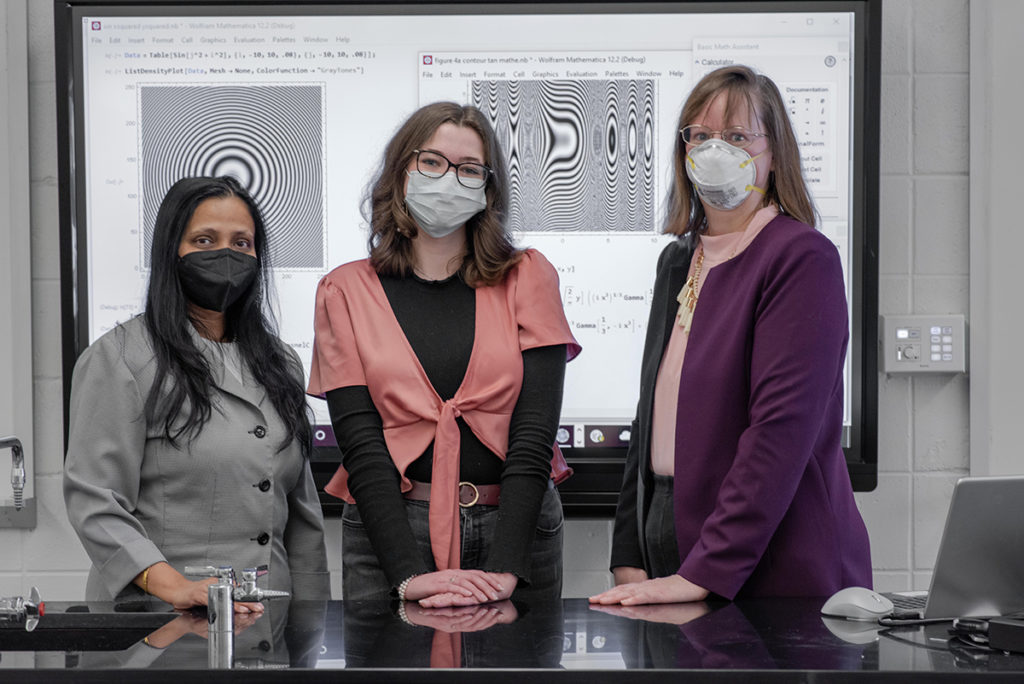
Over the past several months, Drs. Schaefer and Nemani have observed Emily’s technical development, such as in programming skills (she impressed them with her final project for a Python programming course taken concurrently with the research), learning the different CAS syntax and programming languages, and tackling the nuances of scientific writing. Also, as valuable as faculty–student research opportunities are to collegians, they are core to the faculty experience as well. “Faculty must be willing to extend the bounds of their own knowledge and be willing to learn from students,” said Dr. Schaefer. “Mentoring keeps us actively learning.”
Emily says the NASA Space Grant research has given her an opportunity to grow as a researcher and develop her presentation skills. And there’s more. Emily feels this experience has restored her fundamental, treasured essence of being a scientist.
“I deeply missed spending time in the lab last year because of the pandemic,” said Emily. “Through this project, I have regained my scientific curiosity and creativity, which are important today and will be throughout my career.”
Other Student Profiles in the GCU Space Grant Series
Diana Gallego: “The Impact of Mental Health on the Human Autonomic Nervous System”
Angelina Monaco: “The Effect of Isolation and Loss of Social Networks with Applications in Space Exploration”
Patrick Morris: “The Effect of Cognitive Demand on Exercise Capacity and Performance”
Victoria Vonfrolio: “Properties of Special Matrices in Mathematics”
Story contributed by freelance writer Sheila Noonan. Photos by Jim Connolly.

